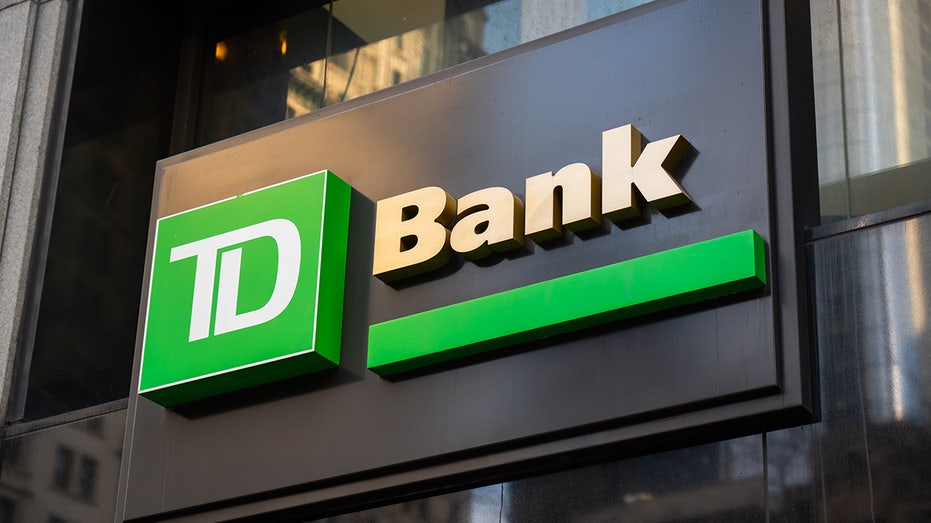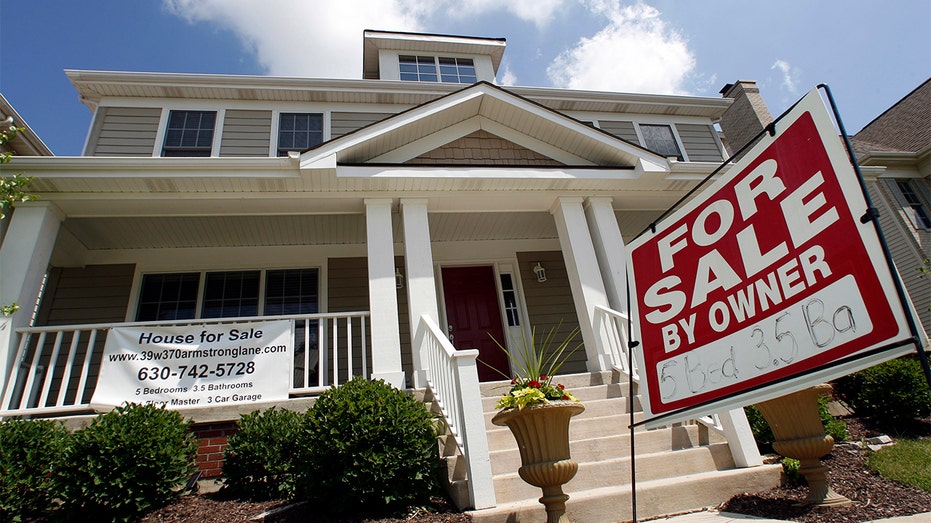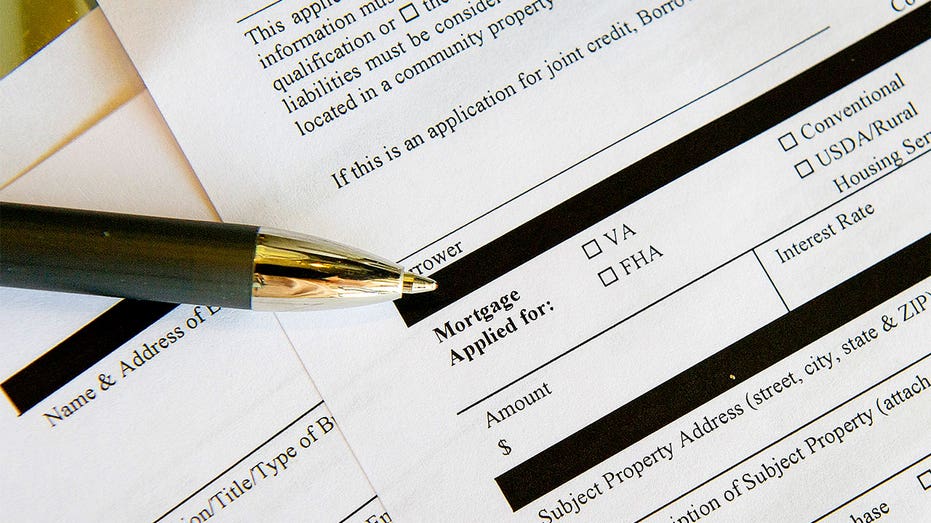TD Bank joins others in offering special purpose credit programs to homebuyers
National Association of Realtors data found there was a significant racial gap in home ownership in 2020
Real estate market 'slowly cooling' amid higher mortgage rates: Expert
Samantha DeBianchi, founder of DeBianchi Real Estate, recommends 'shopping out mortgage rates' as the 30-year fixed rate sits above 5%.
More banks have been offering special purpose credit programs (SPCP) to help homebuyers cover down payments and closing costs.
TD Bank launched an SPCP in March called the TD Home Access Mortgage that is meant to increase homeownership opportunities in majority Black and Hispanic communities in markets within the bank's footprint, which spans from Maine to Florida. It is a 97% loan-to-value product that "only requires $500 of the borrower's own funds," TD Bank's head of community lending and development Michael Innis-Thompson explained to FOX Business.

Canadian multinational banking and financial services corporation, The Toronto-Dominion Bank, or TD Bank logo seen in Lower Manhattan. (Photo by Alex Tai/SOPA Images/LightRocket via Getty Images / Getty Images)
The program, which TD Bank says has debt-to-income ratio flexibility and credit parameters that increase accessibility, includes a $5,000 lender credit that qualifying borrowers can use on closing costs or down payments on a home purchase. Some borrowers are "opting in this increased interest rate environment to use the money, if they don't need it for a down payment or closing costs, to do interest rate buy-downs," Innis-Thompson said.
Other banks have developed similar programs. JPMorgan Chase expanded its grant program in February 2021 to offer $5,000 for closing costs and down payments to homebuyers purchasing homes in predominantly minority neighborhoods.
In late August, Bank of America said it was launching a trial program offering mortgages that do not require closing costs, down payments or minimum credit scores to people in predominantly Hispanic or Black neighborhoods in certain markets that meet specific income requirements.
BANK OF AMERICA TESTS NO-DOWN-PAYMENT MORTGAGES FOR BLACK, LATINO HOMEBUYERS
Recent data from the National Association of Realtors found that there was a significant racial gap in homeownership in 2020. White households had a homeownership rate around 72.5%, while the homeownership rate for Hispanic households was 51.1%, and the rate for Black households was 43.4%.

In this April 1, 2020 photo, a "For Sale" sign stands in front of a home that is in the process of being sold in Monroe, Washington, outside of Seattle. (AP Photo/Elaine Thompson, File / AP Newsroom)
The federal government providing clarification about the legality of SPCPs for real estate lending is one factor that has contributed to more banks offering such programs, according to Innis-Thompson.
In December 2021, the Department of Housing and Urban Development (HUD) issued guidance clarifying SPCPs for real estate loans or credit assistance that abide by the requirements of the Equal Credit Opportunity Act and Regulation B would not violate the Fair Housing Act. Prior to that, there were some "uncertainties" among banks and other lending institutions about whether SPCPs would violate the Fair Housing Act, Innis-Thompson told FOX Business.
HUD's guidance helped "pave the way for other banks to not feel that there was legal risk with regard to potential Fair Housing Act violations," he said.
THE US IS IN A HOUSING RECESSION. HERE'S WHAT THAT MEANS
The Consumer Financial Protection Bureau, board of governors of the Federal Reserve, National Credit Union Administration and other federal agencies also issued a statement in February reminding lenders of their ability to create SPCPs to "meet the credit needs of specified classes of persons."
"You hadn't had that kind of push in the past, and so that also brings a level of comfort in terms of potential risks that might be associated," Innis-Thompson said.
Interest rate increases have impacted all types of mortgage programs – including SPCPs – in terms of participation, according to Innis-Thompson.
Mortgage rates rose sharply during the first six months of the year as the Federal Reserve started approving interest rate hikes in an effort to combat inflation. The average rate for the benchmark 30-year fixed mortgage rose last week to 5.89% from 5.66%, according to Freddie Mac's latest Primary Mortgage Market Survey. Such products averaged 2.88% at the same time last year.

A home sits for sale in Geneva, Illinois, June 23, 2009. (REUTERS/Jeff Haynes / Reuters Photos)
"You have inflation, potential recession discussions, all those things are impact consumer behavior in general," Innis-Thompson added. "Buying a home is probably the biggest purchase most individuals will ever make in their life, and they're going to be very cautious if there are any potential concerns of employment disruptions in an inflationary or recessionary environment."
US HOUSING MARKET DOWNTURN TO WORSEN IN 2023, GOLDMAN SACHS WARNS
The Mortgage Bankers Association's survey last week found the refinance index dropped one percent from the prior week. It was also 83% lower than the same week in 2021, according to the MBA.
"Refinances made up a significant portion of the market in 2020 and 2021, and refinances for all intents and purposes have dried up because interest rates have increased, so there's not a lot of opportunity for people to take advantage of it," Innis-Thompson told FOX Business.

A residential home loan application is arranged for a photograph in San Francisco on Thursday, July 19, 2012. The Mortgage Bankers Association is scheduled to release mortgage applications data on July 25. (David Paul Morris/Bloomberg via Getty Images / Getty Images)
There has been an "upward trend" in the home equity loan space, Innis-Thompson also said, but "we'll continue to see how that trends."
The overall housing market has cooled off significantly in recent months. Purchases of new single-family homes have fallen for six consecutive months, according to Commerce Department data released in late August. The number of home sale cancelations reached a two-year high in July, and builder sentiment has also recently reached record lows.
CLICK HERE TO READ MORE ON FOX BUSINESS




















